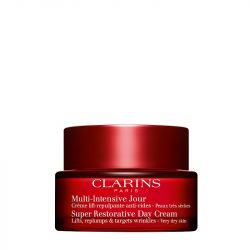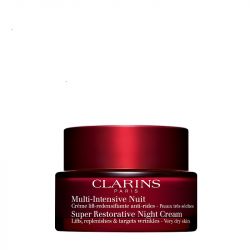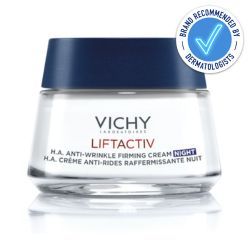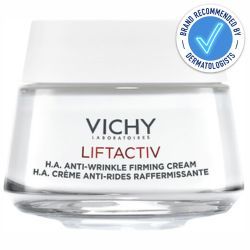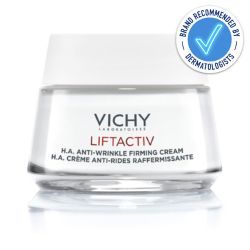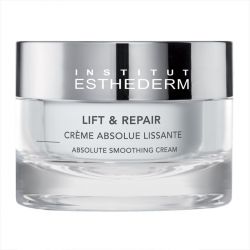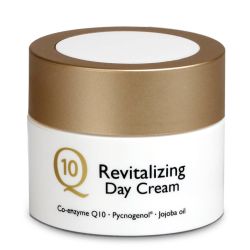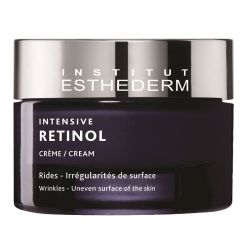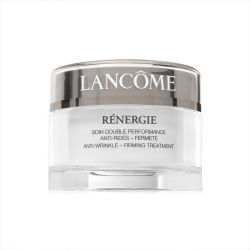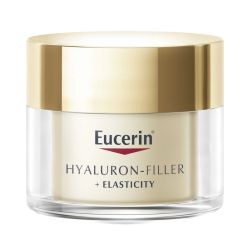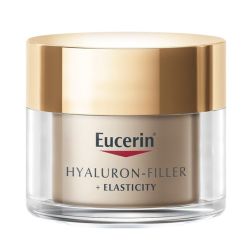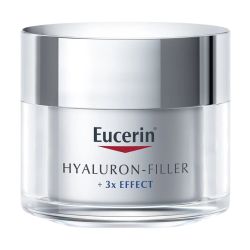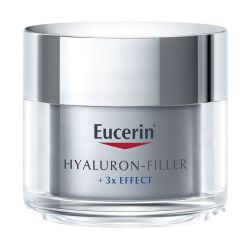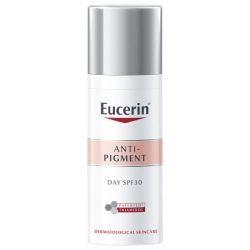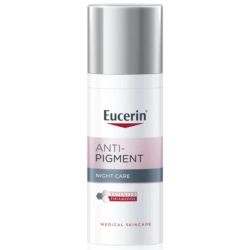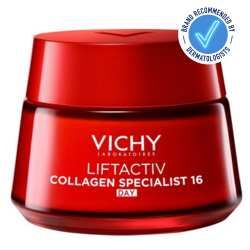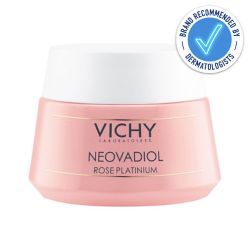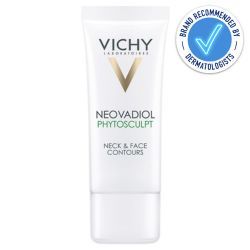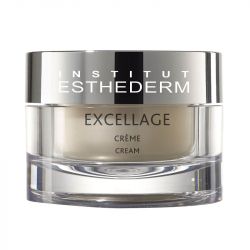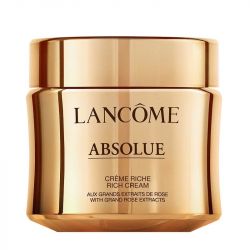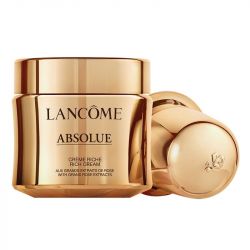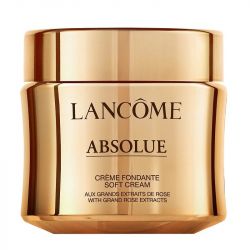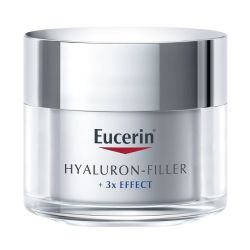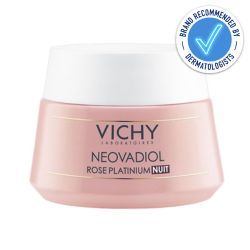Anti-Ageing Moisturisers
As we age, the skin undergoes natural changes, including reduced collagen and elastin production, slower cell turnover, and diminished hydration levels. These factors contribute to the appearance of fine lines, wrinkles, and a loss of firmness, which typically become more noticeable in our 30s and 40s, though the process begins earlier.
Specially formulated anti-ageing moisturisers can tackle these concerns by deeply hydrating the skin, boosting elasticity, and promoting cell renewal. With powerful ingredients like hyaluronic acid, retinol, peptides, and antioxidants, these moisturisers work to smooth wrinkles, plump the skin, and improve texture, helping to restore a youthful and radiant complexion. Regular use of these skincare solutions can help to reduce and delay the visible signs of ageing.
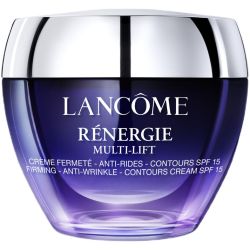 Lancome Rénergie Multi-Lift Firming Anti-Wrinkle Cream SPF15 50mlSpecial Price £69.60 Regular Price £87.00
Lancome Rénergie Multi-Lift Firming Anti-Wrinkle Cream SPF15 50mlSpecial Price £69.60 Regular Price £87.00- Vichy LiftActiv H.A. Anti-Wrinkle Firming Night Cream 50mlSpecial Price £27.75 Regular Price £37.00
- Vichy LiftActiv Supreme Firming Cream Normal To Combination Skin 50mlSpecial Price £26.25 Regular Price £35.00
- Lancome Renergie Anti-Wrinkle Firming Treatment Cream 50mlSpecial Price £69.60 Regular Price £87.00
- Eucerin Hyaluron-Filler Day Cream SPF30 All Skin Types 50mlSpecial Price £27.20 Regular Price £34.00
All you need to know about Anti-Ageing
At what age should I start using anti-aging skincare products?
It’s generally recommended to start using anti-aging products in your mid-to-late 20s or early 30s. This is when the body’s natural collagen and elastin production begins to slow down, and the first subtle signs of ageing, such as fine lines or dullness, may appear. Using a preventative approach early on, such as incorporating moisturisers with antioxidants and SPF, can help delay visible ageing. For more mature skin, creams with active ingredients like retinol or peptides are ideal for tackling more pronounced signs of ageing. Starting early allows you to maintain healthy, resilient skin and reduce the severity of future skin changes.
What ingredients should I look for in an anti-aging cream?
Key ingredients in anti-aging creams include hyaluronic acid, which hydrates and plumps the skin; retinol, which stimulates collagen production and smooths wrinkles; and peptides, which enhance skin elasticity. Antioxidants, like vitamin C and E, help neutralise free radicals and protect against environmental damage. Niacinamide brightens the skin and improves texture, while ceramides strengthen the skin barrier to retain moisture. For daytime use, look for a product with SPF to shield the skin from UV damage, a major cause of premature ageing. A combination of these ingredients tailored to your skin type provides optimal anti-aging benefits.
How often should I use an anti-aging moisturiser?
Anti-aging moisturisers should be used twice daily—once in the morning and once at night. During the day, they help protect the skin from environmental damage and provide hydration to keep it plump and smooth. At night, they work to repair and regenerate the skin as you sleep. Consistency is key to seeing long-term benefits, so incorporating them into your daily skincare routine will yield the best results. Always follow up with sunscreen in the morning if your moisturiser doesn’t contain SPF.
How long does it take to see results from anti-aging moisturisers?
Results from anti-aging moisturisers typically become noticeable after 4–6 weeks of consistent use, though this can vary depending on the product and your skin type. Hydrating ingredients like hyaluronic acid provide immediate plumping effects, while active ingredients like retinol may take several weeks to stimulate collagen and reduce wrinkles. Long-term use, often 3–6 months, yields the most significant improvements in skin texture, firmness, and overall appearance.
Can I use anti-aging creams with other skincare products like serums or sunscreens?
Yes, anti-aging creams can be combined with serums and sunscreens for a more comprehensive skincare routine. Serums with active ingredients like vitamin C or hyaluronic acid can be applied before the moisturiser to enhance its effects. Sunscreen is essential during the day to protect against UV damage and should be applied as the final step after moisturising. Ensure products are compatible to avoid irritation or layering issues.
Do I need to use a separate eye cream for anti-aging?
Using a separate eye cream is recommended, as the skin around the eyes is thinner and more sensitive than the rest of the face. Eye creams are specially formulated with milder concentrations of active ingredients like retinol or peptides to reduce fine lines, puffiness, and dark circles without causing irritation. While anti-aging moisturisers can be applied near the eyes, a targeted eye cream offers additional benefits for this delicate area.
What’s the best way to apply anti-aging cream for maximum effectiveness?
Apply anti-aging moisturisers to clean, slightly damp skin to lock in hydration. Use a gentle upward motion to massage the cream into your face and neck, avoiding harsh rubbing. For targeted benefits, focus on areas prone to ageing, such as the forehead, around the eyes, and the mouth. Consistent, daily application is key to achieving the best results.

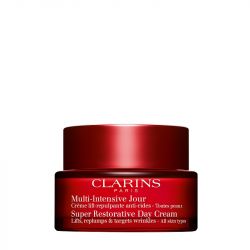
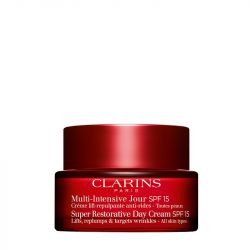
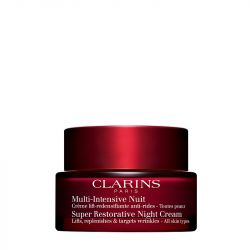
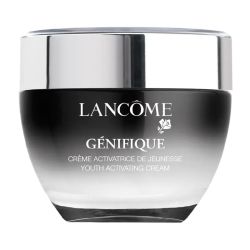
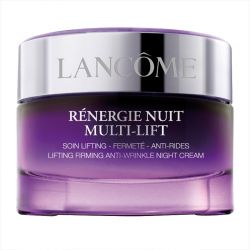
![La Roche-Posay Redermic [R] 30ml](https://www.landyschemist.com/media/catalog/product/cache/0257ac62a7e95cc9ca9e6f3bf21b79bd/l/a/la-roche-posay-redermic-r-30ml-is-recommended-by-dermatologists.jpg)
